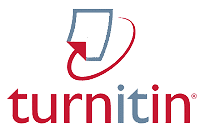THE ETHICS OF PUBLICATION FOR THE AUTHOR OF
THE ARTICLE/SCIENTIFIC JOURNALS
- Serve full information, original, and objective data.
- Quotations and references informed.
- Use the journal space efficiently (a concise manuscript writing).
- Inform the purpose of dangerous chemicals.
- Do not send manuscripts on more than one journal at the same time.
- All people involved (students & supervisor) became a member of the team of writers.
- The writer who died remain joined as a Member.
- To avoid falsification of data (falsification).
- Avoid fragmentation (solving) the report data research into some of the themes the article so discussion become shallow.
- The author of the correspondent is the author of the most knowing a lot of information on manuscripts.
- The first author of a manuscript is determined by its own team of writers.
- Studies involving animals and humans must have a permit from the authorities.
- At the time of delivery of the manuscript, the author of the correspondent must have granted/approved all authors listed on the manuscript for delivery and publication of all versions of the manuscript.
- The manuscripts should not contain material that is copied from other articles without permission of the authors.
- All the ingredients are derived from earlier work, including from the same author, associated with prior publication correctly with proper citations.
- Manuscripts will be maintained on the sever journal and will held be a valid publication by the journal during the ethics violations not found scientific publications.
- Credit against the author are given based on: (1) a substantial Donation towards the conception and design, acquisition of data, or analysis and interpretation of data (2) Involvement in making the draft articles and or refine them critically for important intellectual content, and (3) the fulfilment of the version to be published.
- Acquisition of funding, collection of data, or general supervision of the research group are not included as authors.
- All those who have contributed and helped that do not qualify as authors, should be written on the credits. For example: the technician who had been helping, writing manuscripts, escort or officials of the Department who have been facilitating.
- The parties who have provided financial and material assistance is also written on the credits.


1.png)








